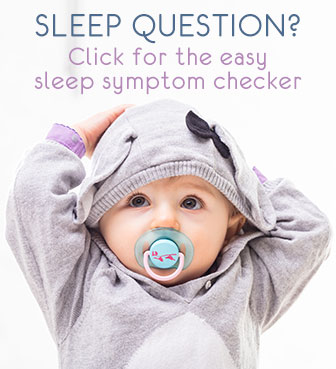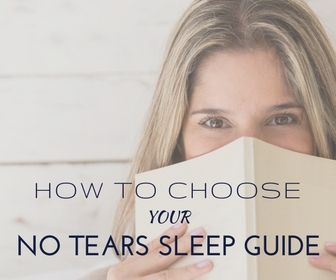Sleep Apnea Signs In Your Baby Or Child
Author Name: Heidi Holvoet, PhD
Medical fact-check: Dr Leah Alexander, M.D., F.A.A.P.
Well-known
child sleep apnea
signs
include snoring and difficulty
breathing at night. But did you know that bedwetting, heavy sweating,
attention problems and anxiety are also tell-tale
symptoms
?
Obstructive apnea (OSA) is quite common in babies
and in
children. Unfortunately it
often
goes
unnoticed and untreated
. The reason is that the symptoms
of are not always very clear.
Do check the lists below and contact your doctor if you have the
slightest suspicion, it is important.
Worried?
Questions? Don't hesitate to
Ask
me
Sleep Apnea Signs in Children
Please verify ALL the symptoms below. If your child sleeps
rather well and doesn't wake you at night, you may only notice the
daytime signs - which are so often also normal in healthy children!
[1]
Night time signs
- Snoring
- Mouth breathing
- Breathing difficulties at night, in particular to stop breathing for 10 seconds or more, then gasping for breath (half-waking up)
- Sleeping restlessly
- Sleeping in awkward positions
- Bedwetting (enuresis)
- Sweating
Day time signs
-
Being moody regularly or most of the time
- Being very or overly active
- Mouth breathing (but no apparent breathing difficulties during the day)
- Noisy breathing while awake
- Behavioral problems like anxiety, easily frustrated, attention and concentration problems, being aggressive, being emotionally unstable.
Sleep
apnea in children
is serious so do not hesitate to
discuss any of these symptoms with your physician.
Sleep Apnea Signs in Babies
Spotting it in babies may be even harder than in toddlers and
older children. The
main symptoms in babies
are when
sleeping:
- Stop breathing for 20 seconds or more
- Gasping for breath, coughing or gagging when catching her breath again
- Snoring
- Turn blue
But,
to stop
breathing briefly is also normal for young babies who are not affected
.
Babies under 6 months old who do not have it, often
regularly
stop
breathing for short periods of up to 15 (!) seconds. To
breathe quickly for a while and then pause breathing for 5-15 seconds
is simply a normal breathing pattern at that age. Premature babies do
this more regularly than termly ones. This is usually nothing to worry about.
Still, if you notice breathing pauses in your baby, always consult a medical doctor.
It's when the breathing pause is for 20 seconds or more, that your baby
is very probably experiencing obstructive sleep apnea. Very typical are
the gasping for breath after a breathing pause. Your baby may even turn
blue.
Each of these
three signs alone tells you to consult your baby's
doctor
as soon as possible
.
Sleep Apnea
Worried? Questions? Ask me
Article Author: Heidi Holvoet, PhD - Founder, senior sleep consultant

Heidi Holvoet, PhD, is the founder of the Baby Sleep Advice website and movement, an award-winning author, baby & toddler sleep consultant with 17+ years experience as well as a certified lactation counselor.
Over the years, Heidi has received several awards inluding a Mom's Choice Award (MCA) and National Parenting Awards (NAPPA) for her Baby Sleep Advice website, programs and books. Also, Baby Sleep Advice was awarded "Most Trusted Infant's Sleep Solutions Company 2023" in the Benelux Enterprise Awards 2023.
Heidi continually conducts personal research and participates in continued education and in that way stays up to date with current scientific and pyschosocial infant care.
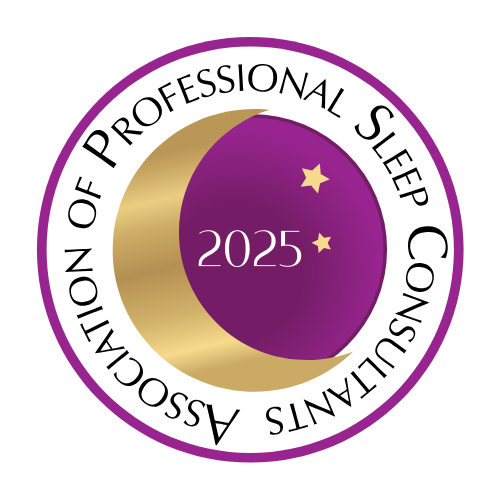
She is also a member of the Association of Professional Sleep Consultants of which she was one of the earliest contributors. She obtained her PhD degree in physics at the University of Ghent in Belgium.
Heidi is passionate about helping babies and their parents sleep more and better, with her trademark holistic and truly-no-tears approach that has been proven and praised time and again by parents worldwide to be effective and truly no-tears. Respect for you as a parent and your baby, is at the heart of Heidi's warm and kind support. Her approach always keeps in mind a baby's needs and abilities at any given age, is based on pediatric science and the most up to date knowledge in infant care and sleep science.
As well as the award-winning baby sleep programs, Heidi offers popular 1:1 consults and easy-access 30-minute SOS Sleep sessions.
Back to the
Sleep disorder overview
Resources
[1] Children's Sleep Apnea on Sleepapnea.org.
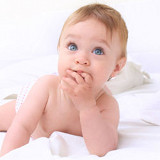
Baby waking every hour?
by Heidi Holvoet, PhD
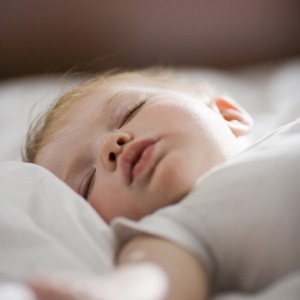
Sleep schedules by age
by Heidi Holvoet, PhD
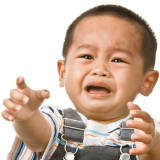
Separation Anxiety
by Heidi Holvoet, PhD
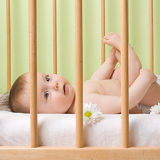
Crib safety guidelines
by Heidi Holvoet, PhD
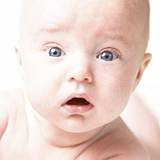
Why does my baby wake up every hour?
by Heidi Holvoet, PhD

